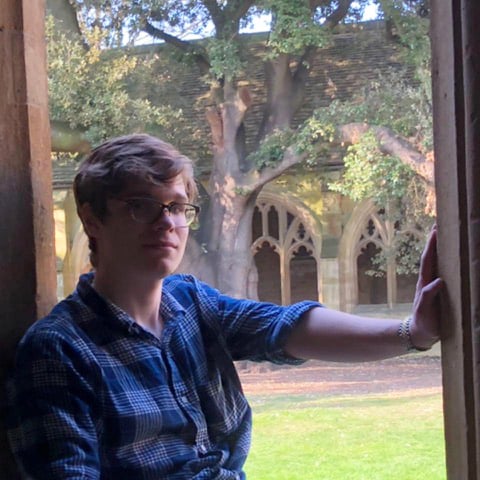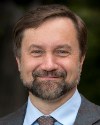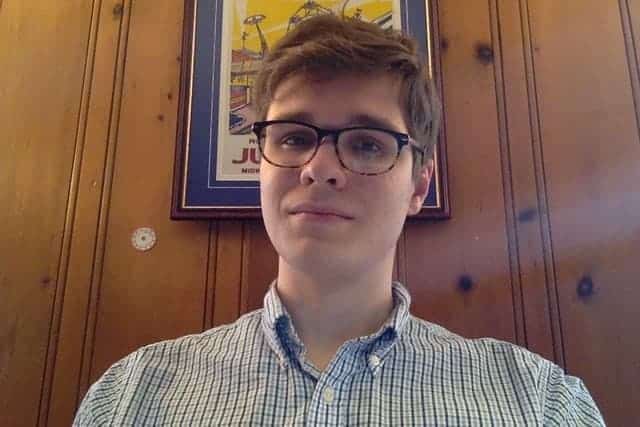Trinity Alumnus Brings Research on Racial Bias in Jury Selection to State Task Force
Not every 22-year-old can say he’s educated some of the most important legal decision makers in his state. For John Lawson ’20, a first-year law student at Harvard Law School and a recent Trinity graduate, this statement rings true.

Lawson earned a B.A. in public policy and law and history. After completing a thesis on racial bias and discrimination in jury selection at the state level, Lawson was asked by Appellate Court Judge Douglas S. Lavine to share his research findings with Connecticut’s Jury Selection Task Force, which was assembled to implement meaningful legislation to address racial discrimination—via implicit bias and overt discrimination—in the jury-selection process.
Lawson recently spoke with members of the task force about the findings of his research, what other states have done to rectify injustices, and what remains to be done in Connecticut.
“It’s really gratifying to maybe have some impact, however small,” Lawson said.
At Trinity, Lawson was a four-year member of the Trinity College Mock Trial Team, which participates in tournaments against other undergraduate schools throughout the northeast, where he strengthened his oral-argumentation skills and further nurtured his passion for law.

He also conducted research under adviser Glenn Falk, professor of the practice in public policy and law, through the Public Humanities Collaborative. This research allowed Lawson to work closely with Falk on the Haddam Jail Legal History Project in 2018, as he entered his junior year. The result of that summer’s work not only examined the now-defunct Haddam Jail but also positioned its story within the broader history of prisons in the United States.
Through his experience working with Lawson both on the Haddam Jail Legal History Project and in the classroom, Falk said, he is confident that Lawson has what it takes to excel in his legal career.

“He’s a tremendous student, and he’s going to make a great lawyer,” said Falk. Speaking about the first time Lawson participated in a mock argument in his “Law, Argument, and Public Policy” course, Falk said, “When John argued in the first round, I could tell right there … this guy’s a star.”
Lawson said the combination of the tangible skills he learned in Trinity classrooms and his supportive undergraduate professors helped him get accepted into Harvard Law School to begin this next chapter of his life.
“I got a lot of crucial skills at Trinity. Being a public policy major, I read a lot of court opinions, and that was great practice because that’s half of what you do in law school,” Lawson said. He added that in addition to mastering the skill of reading a brief, he also gained public speaking skills and developed confidence in oral argumentation through classroom practice and mock trial competitions.

On his Trinity professors, specifically advisers Falk and Adrienne Fulco, associate professor of legal and policy studies, Lawson said, “I couldn’t have done it without them. The Public Policy and Law Program is really there for its students. It really, really helps prelaw students get a leg up.”
Lawson plans to work in environmental law. He wants to take on corporations, enforce environmental regulations, and perhaps eventually work for a state agency devoted to environmental protection. For now, he’s excited about the growth and professional development that Harvard undoubtedly will bring him.
“I’m looking forward to becoming a more persuasive person, learning how to argue more effectively, convincing people more effectively,” Lawson said. “That’s something I’m really looking forward to.”
